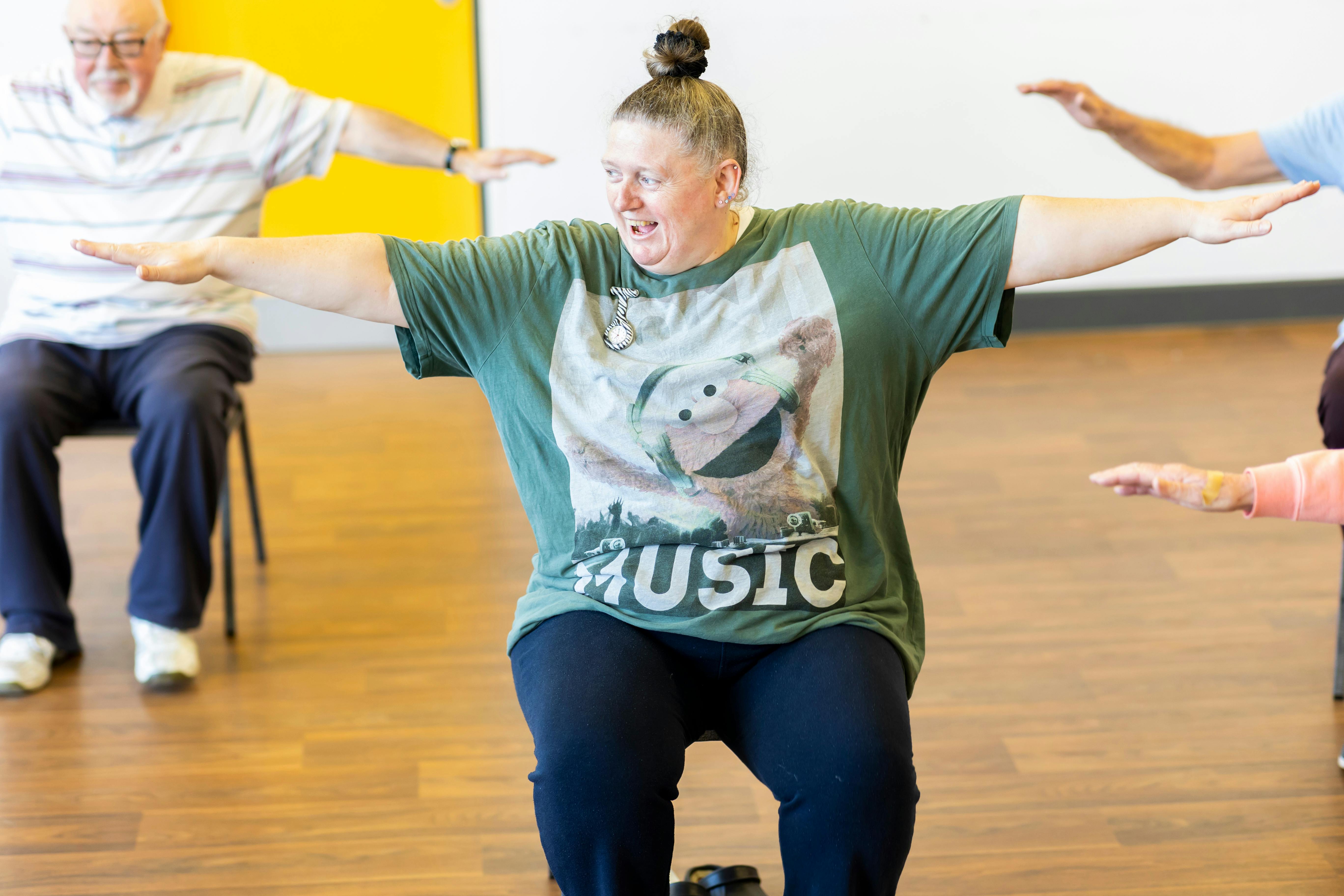Effective Gym Plan to Optimize Your Training in 2025: Discover Proven Strategies!
As we step into 2025, the importance of a structured gym plan cannot be overstated. Whether you are aiming to build muscle, lose weight, or enhance your overall fitness, having a comprehensive approach is crucial. The right trainingsplan can help you achieve your fitness goals more efficiently, ensuring progress while preventing injuries and burnout. In this article, we’ll explore various aspects of creating an effective Workout-Programm, focusing on Krafttraining, Ausdauertraining, nutrition, and recovery strategies. We will also share tips to keep your fitness motivation high and introduce advanced techniques to elevate your training. Let’s dive into the essentials of optimizing your gym experience!

Essential Elements of a Balanced Training Routine
Building a balanced training routine is fundamental for anyone looking to maximize their gym time. This involves incorporating Krafttraining, Ausdauertraining, and flexibility training into your weekly regimen. Each component serves a different purpose in achieving your overall fitness goals.
Integrating Strength and Cardio Training
A balanced Trainingsroutine should effectively integrate strength training and cardiovascular workouts. Strength training helps develop Muskeln aufbauen, while cardio improves your heart health and aids in Körperfettreduktion. Aim for a minimum of two days of strength training each week, targeting all major muscle groups. Include one to two sessions of Cardiotraining to enhance your aerobic capacity.
Importance of Stretching and Flexibility
Flexibility is often overlooked but is crucial for overall fitness. Incorporating Stretching routines into your warm-ups and cool-downs can improve your range of motion, reduce injury risk, and enhance muscle recovery. Aim for at least 10 minutes of stretching every workout session.
Track Your Progress with Fitness Apps
Utilize Fitness-Apps to monitor your workouts, track your Trainingsfortschritt, and maintain your motivation. These tools can help you adjust your Trainingsintensität and hold you accountable. Choose an app that displays your metrics and offers tailored workout suggestions.

Nutrition Strategies to Support Your Fitness Journey
Nutrition plays a vital role in achieving your fitness goals. Whether your aim is to enhance performance or achieve Gewichtsreduktion, understanding the right dietary choices can significantly influence your results. Here are some strategies to consider.
Fueling Your Body for Performance
Your body requires adequate nutrition to perform at its best. Focus on a balanced diet rich in proteins, carbohydrates, and healthy fats. Incorporate sources of lean protein like chicken, fish, and legumes to promote Muskelaufbau. Additionally, include whole grains and plenty of fruits and vegetables for energy and recovery.
Effective Meal Timing and Pre-Workout Nutrition
Timing your meals smartly can optimize your performance in the gym. A meal rich in carbohydrates and protein about 2-3 hours before your workout can enhance your energy and endurance. Post-workout, replenish your body with a protein shake or a nutritious meal to kickstart recovery.
Hydration and Its Impact on Performance
Staying hydrated is crucial for optimal performance and recovery. Dehydration can lead to fatigue and decreased exercise capacity. Aim to drink water regularly throughout the day and more during your workouts. Electrolyte drinks can be beneficial during intense training sessions.
Designing Your Workouts for Maximum Efficiency
An effective workout plan focuses on specific goals and adjusts over time to ensure progress. Let’s discuss how to uniquely tailor your Workout-Programm for success.
Creating Effective Workout Splits
A workout split divides your training into different muscle groups or workout types across the week. Popular splits include full-body workouts, upper-lower splits, and push-pull-legs routines. Choose a format that fits your lifestyle and allows for recovery while targeting all muscle groups effectively.
The Role of High-Intensity Training and Intervals
Implementing High-Intensity Training and interval workouts can significantly improve your overall fitness. These methods are effective for burning calories, enhancing cardiovascular fitness, and building muscular endurance. Incorporate interval training sessions into your weekly routine to challenge yourself and break through plateaus.
Listening to Your Body and Adjusting the Plan
Finally, remain attentive to your body’s feedback and adjust your training accordingly. Underperformance could indicate the need for additional recovery or changes in your Trainingsintensität. Flexibility in your plan allows you to prevent injuries and maintain long-term motivation.
Motivation and Mindset in Achieving Fitness Goals
Staying motivated through your fitness journey is essential for achieving long-term results. Finding ways to keep your enthusiasm alive can make all the difference in your consistency.
Setting SMART Fitness Goals
Establishing Fitnessziele using the SMART framework (Specific, Measurable, Achievable, Relevant, Time-bound) can create a structured approach to your training. This makes it easier to track progress and adjust as needed. Break down your ultimate goal into smaller, manageable milestones.
Building a Supportive Fitness Community
Engaging with a fitness community, whether online or in-person, can help enhance motivation. Seek out group classes or Personal Trainer guidance to keep you inspired and accountable. Sharing your challenges and successes with others can provide encouragement and fresh perspectives.
Keeping It Fun and Varied
Monotony can sap motivation. Keep your workouts exciting with Workout-Variation and new exercises. Experiment with different fitness classes, try new activities, or integrate outdoor workouts into your routine.
Monitoring Your Progress and Making Adjustments
Regularly assess your progress to ensure you are on track to meet your fitness objectives. Adjustments in your workout routine or nutrition may be necessary based on your experiences.
Using Fitness Trackers for Evaluation
Fitness trackers can provide valuable insights into your performance and recovery. Use them to monitor your heart rate, caloric expenditure, and sleeping patterns. This data can help you fine-tune your training and optimize your overall health.
Consulting With Fitness Professionals
If you struggle to make progress, consider consulting a Personal Trainer or nutritionist for expert advice tailored to your situation. A professional can help pinpoint areas for improvement and administer guidance tailored to your unique fitness goals.
Final Thoughts on Your Fitness Journey
As you embark on your fitness journey in 2025, remember that the key to success lies in a well-structured approach. By combining strength training, cardio, and proper nutrition, along with a supportive community and effective monitoring, you can achieve your fitness goals. Stay flexible, motivated, and always ready to adapt your plan for the best results!
Q&A Section: Common Questions About Gym Plans
What is the best way to start a gym plan?
Begin by setting clear objectives, such as weight loss or muscle gain. Follow this by creating a balanced training schedule that incorporates both strength and cardio workouts while focusing on proper nutrition and recovery.
How often should I change my workouts?
It is beneficial to change your workout routine every 4-6 weeks to prevent plateaus and maintain motivation. Try incorporating new exercises, increasing weight, or altering your workout split.
What nutrition tips can help support my training?
Focus on a balanced diet with plenty of whole foods, including lean proteins, healthy fats, and complex carbohydrates. Adequate hydration and timely meals surrounding your workouts can also significantly impact your performance.
How can I stay motivated to stick to my training plan?
Setting realistic goals, joining a fitness community, and varying your workouts can all help maintain motivation. Tracking progress and celebrating milestones can also boost your commitment to your fitness journey.
Are supplements necessary for achieving fitness goals?
While supplements can aid in performance and recovery, they are not essential. It’s best to focus on a well-rounded diet before considering supplementation as a support measure.
